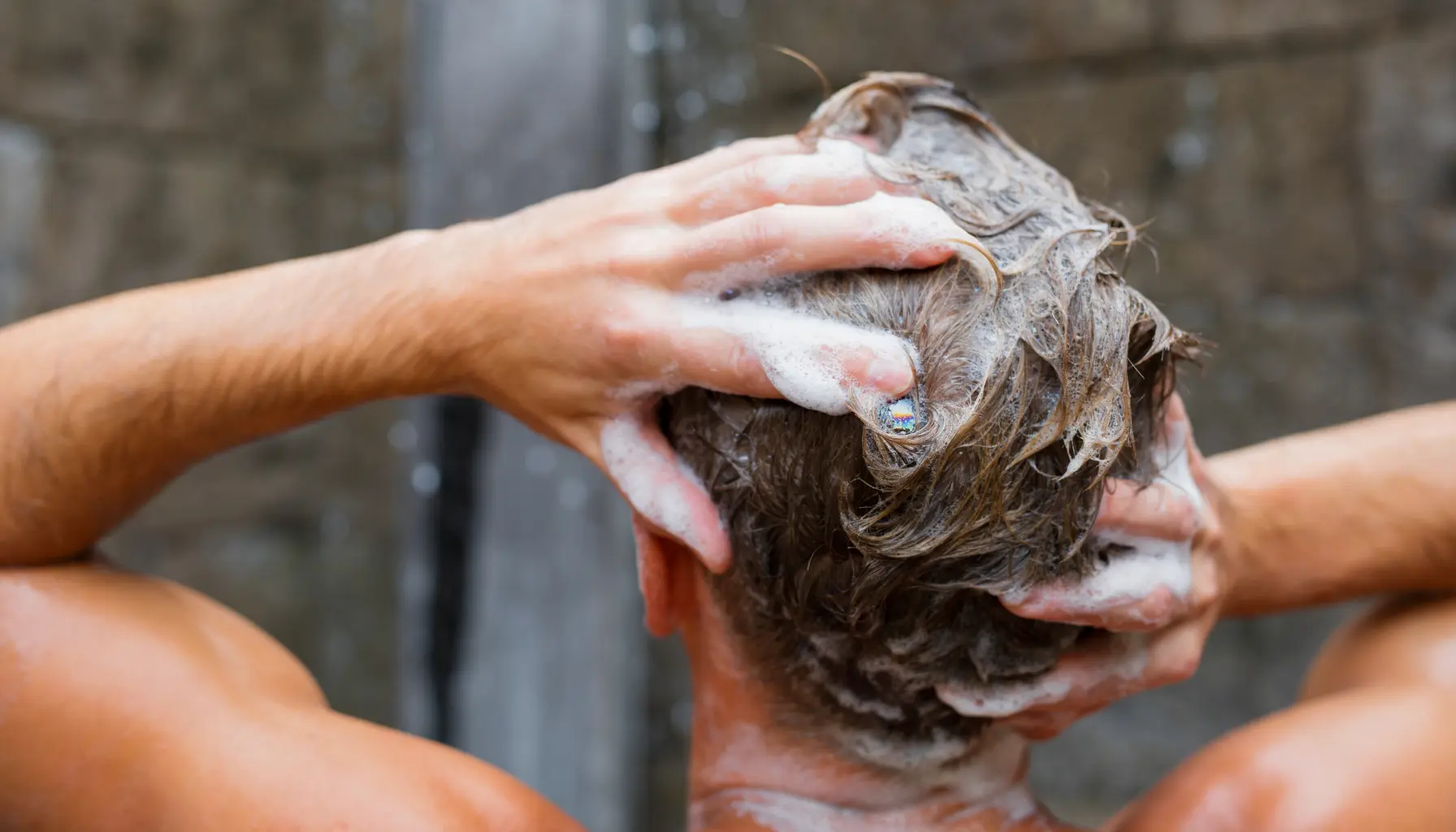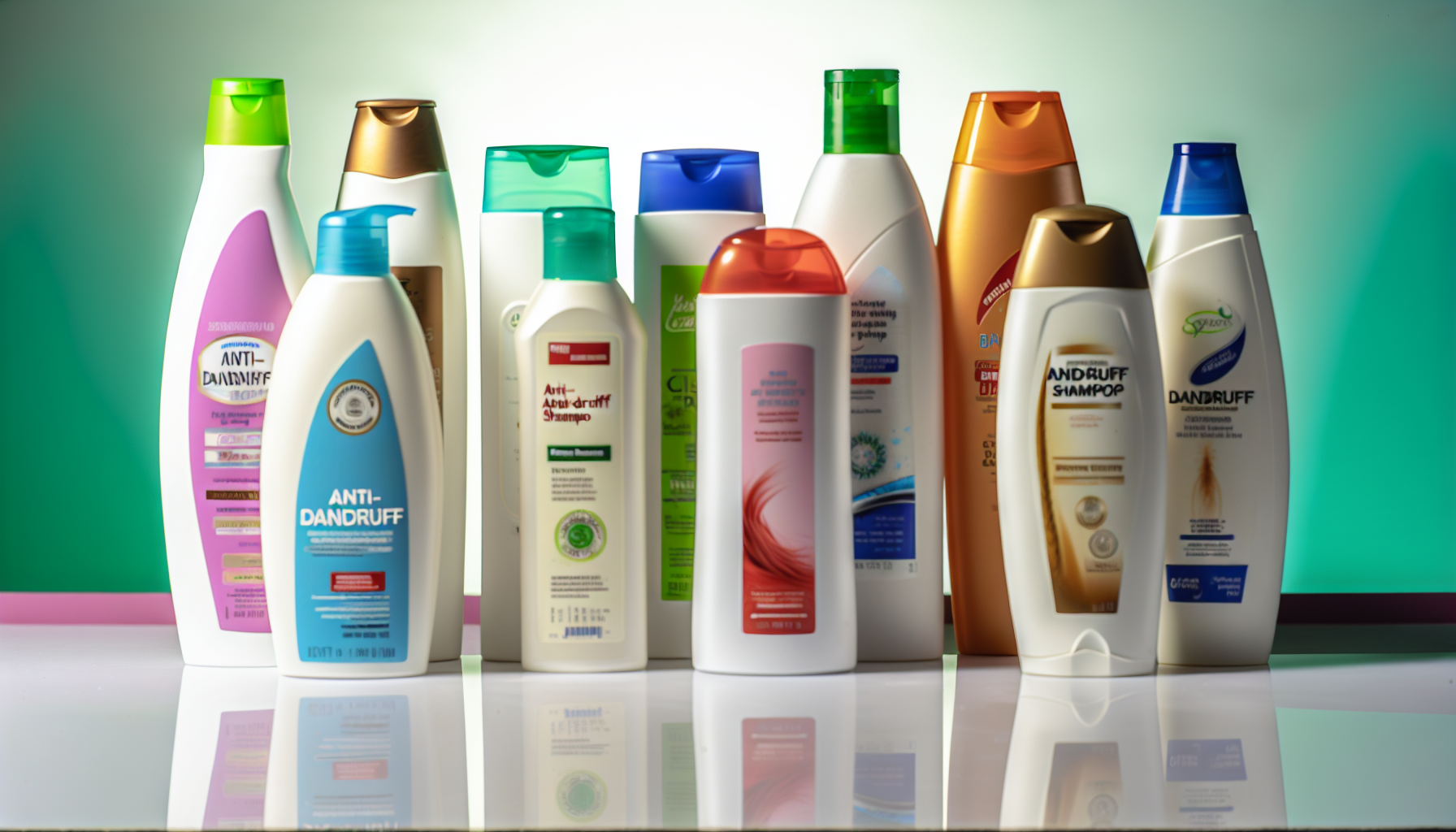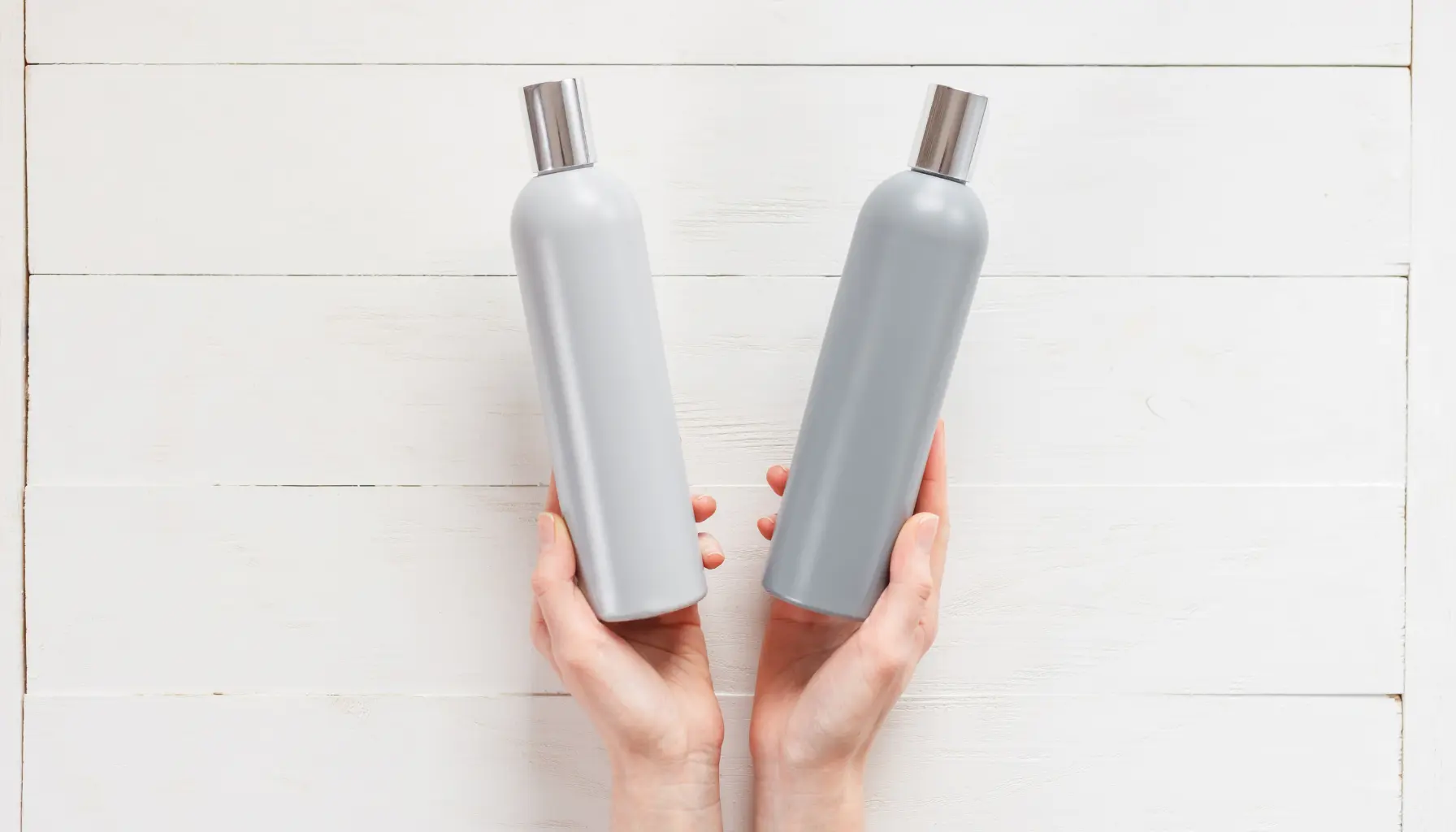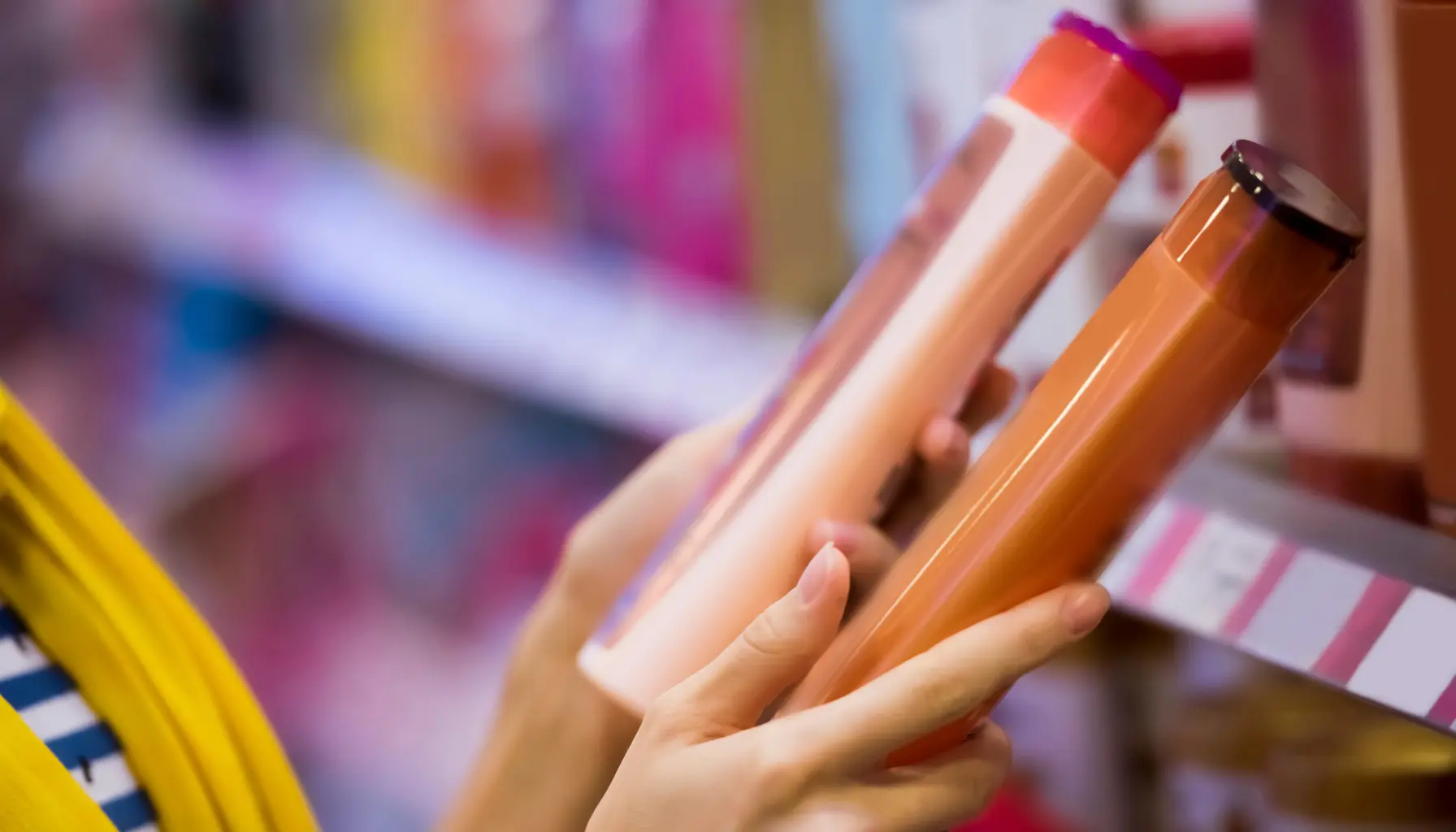Wondering how often should I use anti dandruff shampoo’? The answer depends on your unique hair and scalp situation. Tailor your shampoo routine with our guide to managing dandruff effectively without over-washing.
Dive in to learn how frequency can make a difference and how you can find your individual sweet spot.
- The frequency of anti-dandruff shampoo use should be tailored to the severity of dandruff and hair type, balancing between sufficient treatment and maintaining scalp health without over-washing.
- Choosing an anti-dandruff shampoo with the right active ingredients is crucial as they target different issues like reducing flakes, controlling oil, or soothing itchiness, and may require a customized approach based on individual scalp conditions.
- It’s essential to follow the anti-dandruff shampoo instructions accurately, avoid applying too much pressure during use, and integrate it with normal shampoo for overall hair health, adjusting the regimen as necessary based on the scalp’s response.
Determining Your Anti-Dandruff Shampoo Schedule

The level of severity of dandruff decides how frequently one should use anti-dandruff shampoo. Moderate to severe cases require 3 or 4 washes each week. Hair type also plays a role in deciding when and which products are best used for your scalp health care regime.
Hair may only need two doses per week with their specialized formula. It is important to keep things balanced, too much washing can strip away natural oils from the head, but not enough could result in flaky skin along with itchiness as well. Finding that equilibrium requires experimentation since there isn’t just one all inclusive solution available universally.
The Role of Active Ingredients in Anti-Dandruff Shampoos

When it comes to anti-dandruff shampoos, understanding the function and effects of active ingredients is key for successful treatment that maintains scalp health. Various ingredients such as zinc pyrithione, selenium sulfide, ketoconazole or salicylic acid are used in these products due to their ability to combat dandruff symptoms like flaking caused by Malassezia globosa fungus, especially when dealing with oily scalps.
Different formulas offer a variety of properties ranging from antifungal actions against inflammation through protective barriers formed on the scalp after rinsing. But be sure always read labels carefully since some could lead to irritation depending on each user’s individual needs.
Finding an optimal solution requires knowledge about various active ingredients contained within different kinds of dandruff shampoo so we can make wise decisions accordingly.
Creating a Tailored Anti-Dandruff Regimen
For successful anti-dandruff management, it’s essential to personalize your shampoo regimen by analyzing the active ingredients and considering factors such as scalp type (oily vs dry) and hair characteristics. Determining redness, oiliness or flakiness is key in finding a suitable formula that fits one’s individual needs.
Key components of an effective dandruff cleansing product are reducing flakes, soothing itch on the head area. Moderating sebum production while Enhancing overall scalp health for better performance of particular shampoos employed twice weekly, with some modifications being necessary if symptoms indicate milder problems like slight dandruff presence.
Both lifestyle decisions along with diet choices should be taken into account when seeking complete wellness from issues related to abnormal desquamation, impacting the skin and the natural look of hair. These external factors can enhance the effectiveness of specialized products designed to combat this persistent problem.
Integrating Anti-Dandruff Shampoo With Normal Shampoo

It is essential to treat dandruff and maintain scalp health, which can be done by alternating between anti-dandruff shampoo and regular shampoo. This offers multiple advantages including reducing fungal growth on the scalp, relieving itching, combating flakes as well as treating any kind of dandruff present.
To maximize the benefits from using these two kinds of shampoos, integrate them into your routine, use one type on certain days and then switch up the next day with a different option altogether. Using an anti-dandruff shampoo after normal cleaning assists with lathering while conditioning hair.
This will help to keep all aspects regarding good locks healthy! Striking a balance between utilizing anti-dandruff items along with tending to overall hair care is key for great looking strands that are free from flaky problems or other irritations like itchiness associated with common scalp conditions caused due to overuse of either product alone.
Common Missteps in Using Anti-Dandruff Shampoos

When it comes to fighting dandruff, we often make mistakes that can hinder our progress. One example is not adhering to the instructions given on anti-dandruff shampoo labels which could lead to scalp irritation or even allergic reactions as well as an overly dry and painful feeling in the area.People who have seborrheic dermatitis might experience persistent dandruff issues from this misstep.
A person should be careful when massaging their scalp with anti-dandruff shampoo. Too much pressure may irritate the skin, causing flaking problems to worsen rather than improve over time.
Using more of these shampoos than necessary has its drawbacks – such as skin irritation due to excessive drying and temporary hair loss caused by increased oiliness - thus balance between usage is key for preserving healthy scalps and follicles while effectively tackling unwanted fates like dander build-up on one’s hair shafts.
When to Adjust Your Anti-Dandruff Shampoo Usage
Achieving a dandruff-free life requires commitment to a consistent anti dandruff shampoo regimen. You should also be aware of your scalp’s response and modify the routine as needed. Unhealthy hair, an irritated or swollen head with severe flakes, itches and negative side effects such as dryness are indicators that adjustments may be necessary.
Patience is essential because results might take weeks before being visible. So if you haven’t seen any progress after using shampoos for one month - several different things could have caused this like discontinuing too soon, not massaging properly etc. If there is still no improvement in spite of all efforts made over four consecutive weeks then consulting professional advice from either doctor or dermatologist would be best option forward – they can identify underlying medical conditions which require specialised treatment specifically tailored to individual needs versus general use anti-dandruff products available commercially on shelves today.
By observing your scalp and hair conditions and responding as per the provided instructions, you can effectively decrease bald spots and control itchiness. This will result in a well-maintained, healthy-looking head of hair that is finally free from persistent itchiness that can be both bothersome and irritating!
Summary
Our comprehensive exploration into the world of dandruff management and scalp health has revealed the importance of various factors. These include the severity of dandruff, the active ingredients in your chosen products, and the creation of a personalized treatment plan. It's crucial to combine the use of anti-dandruff shampoos with regular ones to effectively combat flakiness, but beware of potential missteps.
Remember, everyone's scalp is different. A solution that's perfect for one person may not work for another, so it's vital to consider your unique needs and maintain consistency in your treatment routine. With the right approach and a little patience, you can look forward to a future free from the annoyance of persistent dandruff!
Frequently Asked Questions
Should you use dandruff shampoo everyday?
Not necessarily. The frequency of using anti-dandruff shampoo depends on the severity of your dandruff and the specific instructions of the product you're using. While some people may need to use it daily, others might only need to use it a few times a week. Overuse can potentially dry out your scalp, leading to further irritation. It's always best to start with the recommended usage on the product label, and then adjust based on how your scalp responds. If you're unsure, it's a good idea to consult with a dermatologist.
What are the active ingredients in anti-dandruff shampoo?
The use of active ingredients, such as zinc pyrithione, selenium sulfide and ketoconazole, in anti-dandruff shampoos effectively combats dandruff by reducing the presence of Malassezia globosa fungus.
Can I combine anti-dandruff shampoo with regular shampoo?
Using anti-dandruff shampoo with regular shampoo can help combat dandruff and improve scalp health. This can be done by alternating between the two on different days to provide both cleansing of your hair and clearing out any remaining flakes or itchiness caused by a dandruff buildup.
Discover other related topics of interest:






